Art World
A New Book Makes the Case That Fantasy Art Is America’s Least Understood Fine-Art Form—See the Wild Images Here
Taschen presents 500 pages of dragons, wizards, and fantasy maidens.
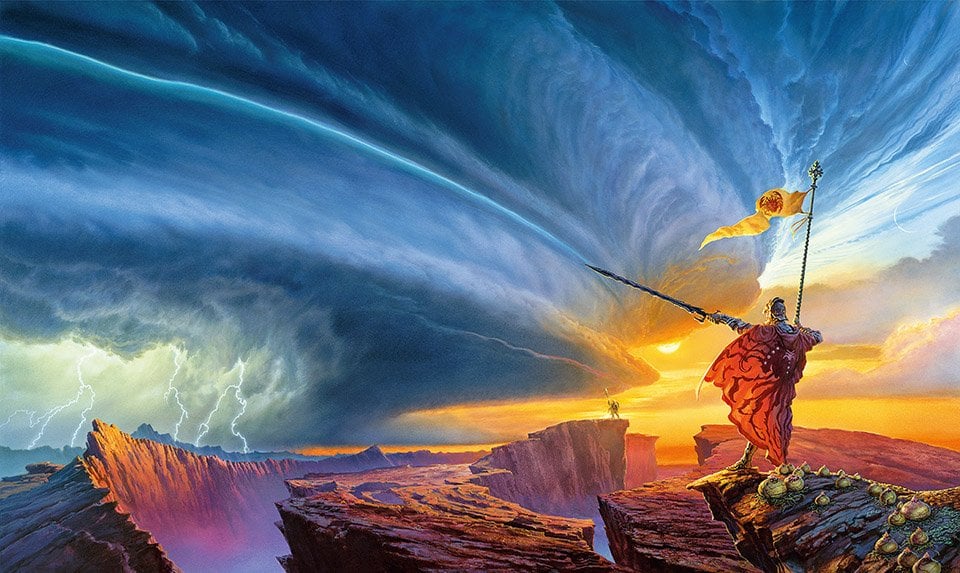
Taschen presents 500 pages of dragons, wizards, and fantasy maidens.

Sarah Cascone

Dragons, sexy maidens, and epic sword fights are getting the fine-art treatment in Masterpieces of Fantasy Art, Taschen’s new 532-page illustrated tome celebrating the genre. At once realistic and other worldly, fantasy art is an escapist delight made for 2020, transporting the viewer into unique, dramatic landscapes that exist only in the artist’s imagination.
Lest you think fantasy art is nothing more than a lightweight endeavor, the massive volume weighs a hefty 16 pounds. Tracing the evolution of the genre from 1400 to the present, it showcases the works of Old Masters Jan Van Eyck and Hieronymus Bosch as well as contemporary heavy-hitters like H.R. Giger, Frank Frazetta, and Boris Vallejo.
“Since fantasy art is largely created as work for hire, no matter how talented the artist,” author Dian Hanson writes, “it has always been accessible, displayed prominently on the newsstand, to its advantage and curse.”
The genre’s predilection for provocative, sexualized scenes has also hurt its credibility among the art-world cognoscenti—not to mention that the mass-produced fantasy books were literally printed on cheap pulp paper in the 20th century.
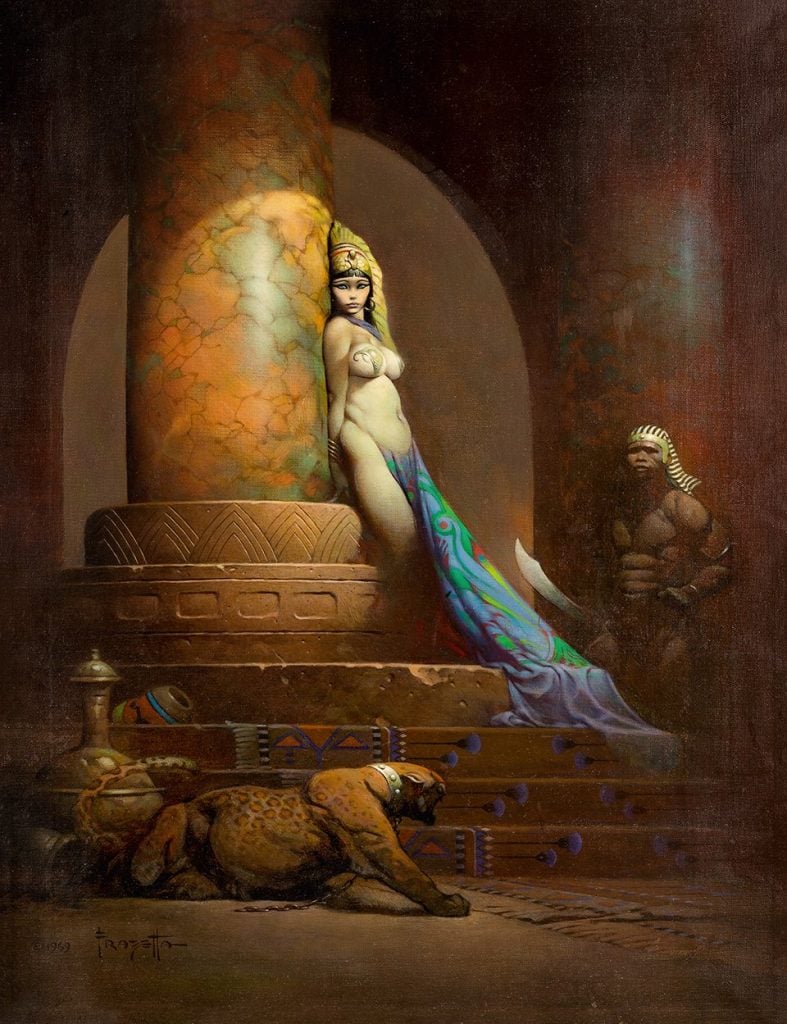
Frank Frazetta, Egyptian Queen (1969). This painting set the auction record for the most expensive original work of comic art with a $5.4 million sale in 2018. Courtesy of Frank Frazetta from Taschen’s Masterpieces of Fantasy Art.
Hanson amassed more than 100 superlative examples of this oft-misunderstood form for the book. The compilation speaks to the genre’s considerable appeal—which has also translated into impressive art-market success. Original Frazetta oil paintings have sold for as much as $5.4 million.
The book’s cover image, Frazetta’s Princess of Mars (1970), fetched $1.2 million at Dallas’s Heritage Auctions in September. The artist’s record at auction is $5.4 million, set last year at Heritage in Chicago for Egyptian Queen (1969), according to the Artnet Price Database. (It’s the worlds most expensive piece of original comic book art.)
“With the rise of online auction houses, nontraditional collectors are tempted to buy what they want, rather than what a gallerist advises, letting the old medial orbitofrontal cortex do the choosing,” Hanson writes. “And once you turn those pleasure centers loose, let’s face it: Most of us are going to go with those colorful, dynamic works of fantasy that make us all feel so much better.”
See more artwork from the book below.
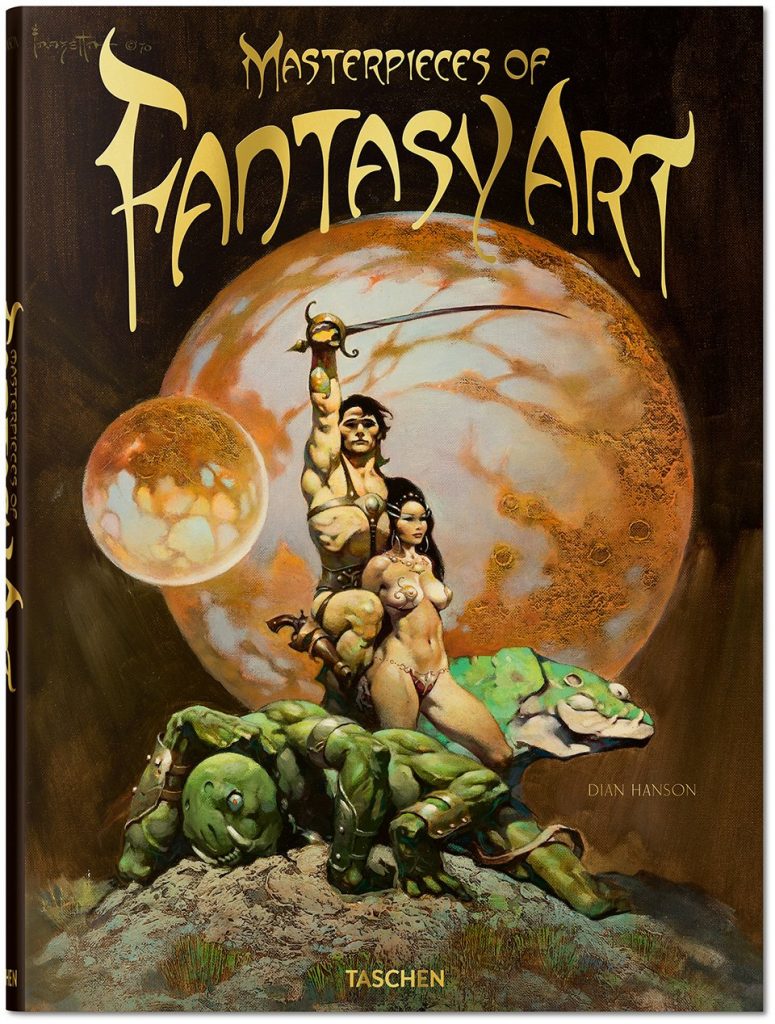
Masterpieces of Fantasy Art by Dian Hanson. Cover art The Princess of Mars (1970) by Frank Frazetta. Courtesy of Frank Frazetta Courtesy of TASCHEN.
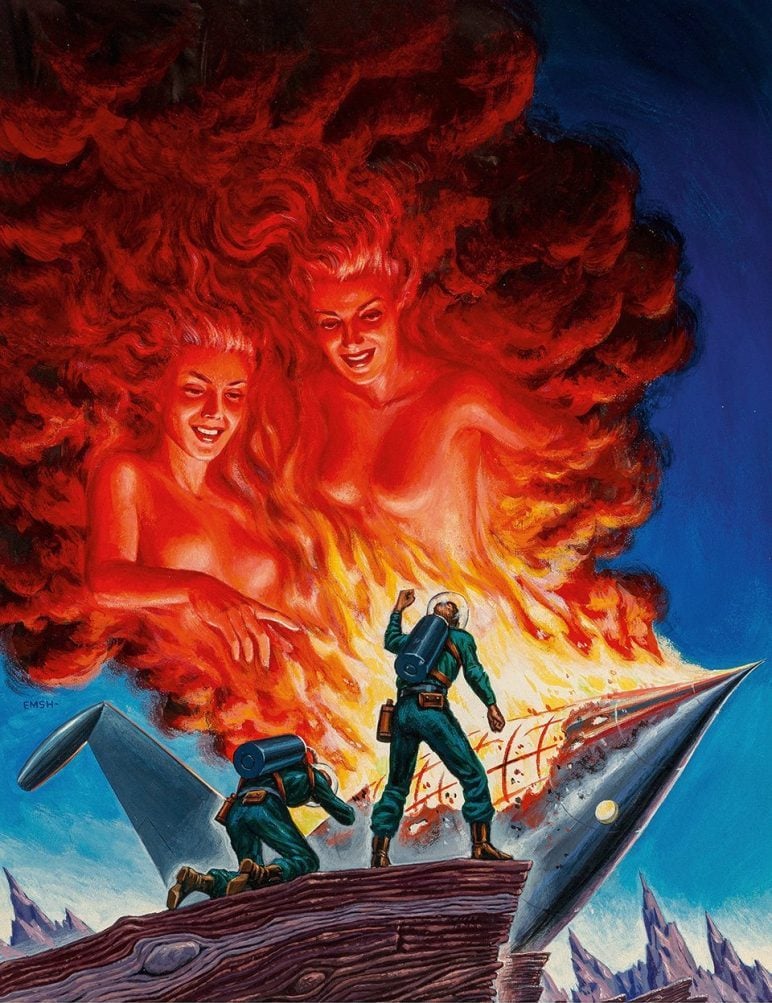
Ed Emshwiller, cover for Startling Stories (1954). Courtesy of Ed Emshwiller from TASCHEN’s Masterpieces of Fantasy Art.
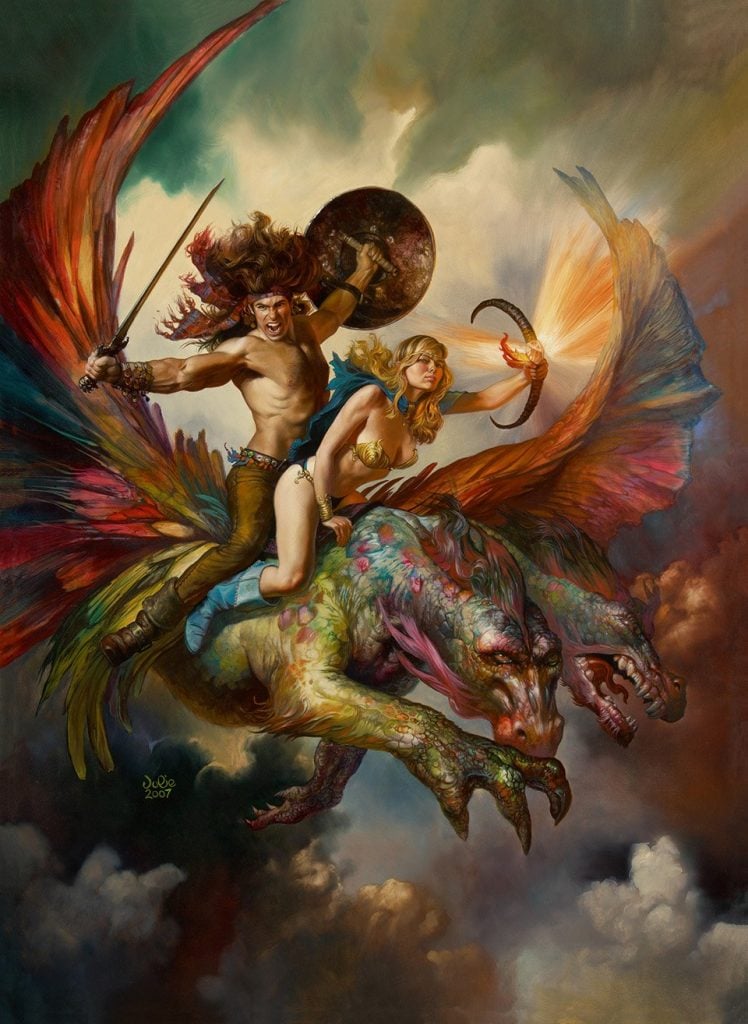
Julie Bell, Victory Fight (2007). Courtesy of Julie Bell from TASCHEN’s Masterpieces of Fantasy Art.
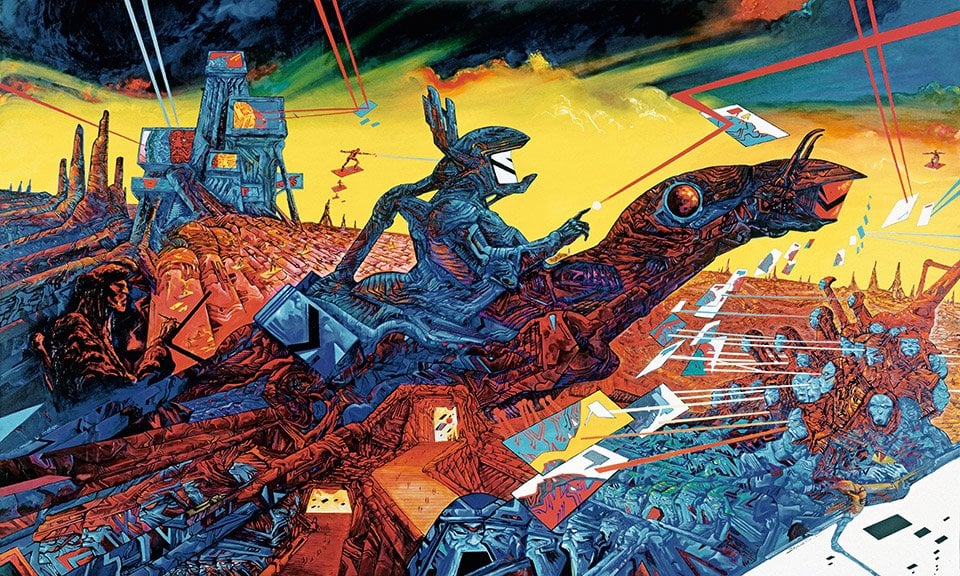
Philippe Druillet, mural for Angouleme, France (1985). Courtesy of Philippe Druillet from TASCHEN’s Masterpieces of Fantasy Art.
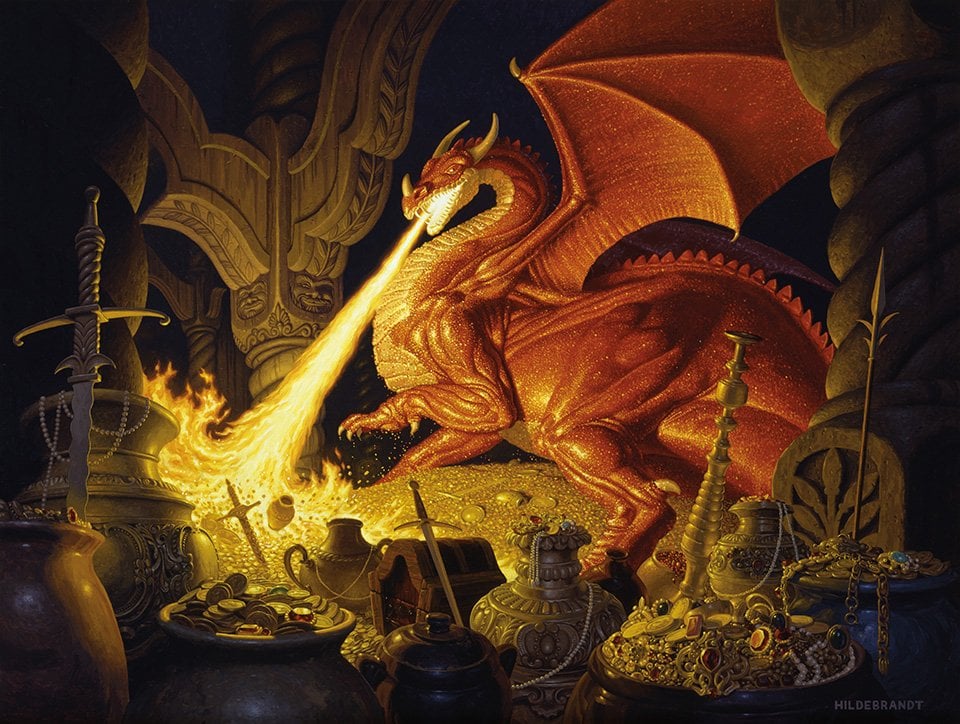
The Brother’s Hildebrandt, Smaug’s Lair (1976). Courtesy of the Brother’s Hildebrandt from TASCHEN’s Masterpieces of Fantasy Art.
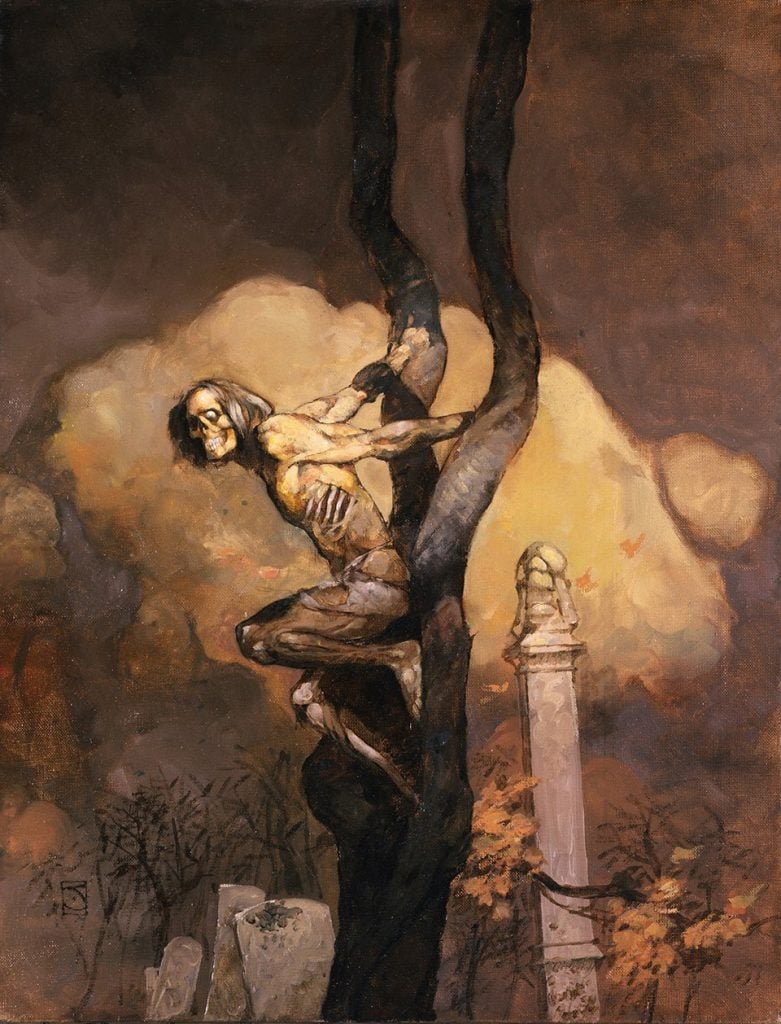
Jeffrey Catherine Jones, At Night (aka Want Eyes) (1975). Courtesy of Jeffrey Catherine Jones from TASCHEN’s Masterpieces of Fantasy Art.
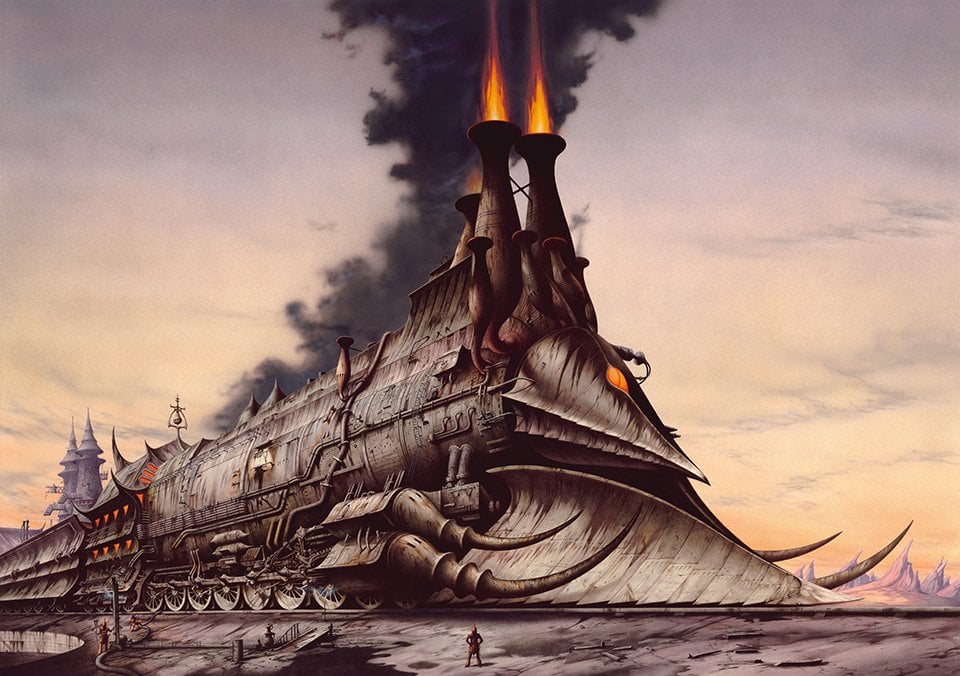
Rodney Matthews, The Heavy Metal Hero (1985). Courtesy of Rodney Matthews from TASCHEN’s Masterpieces of Fantasy Art.
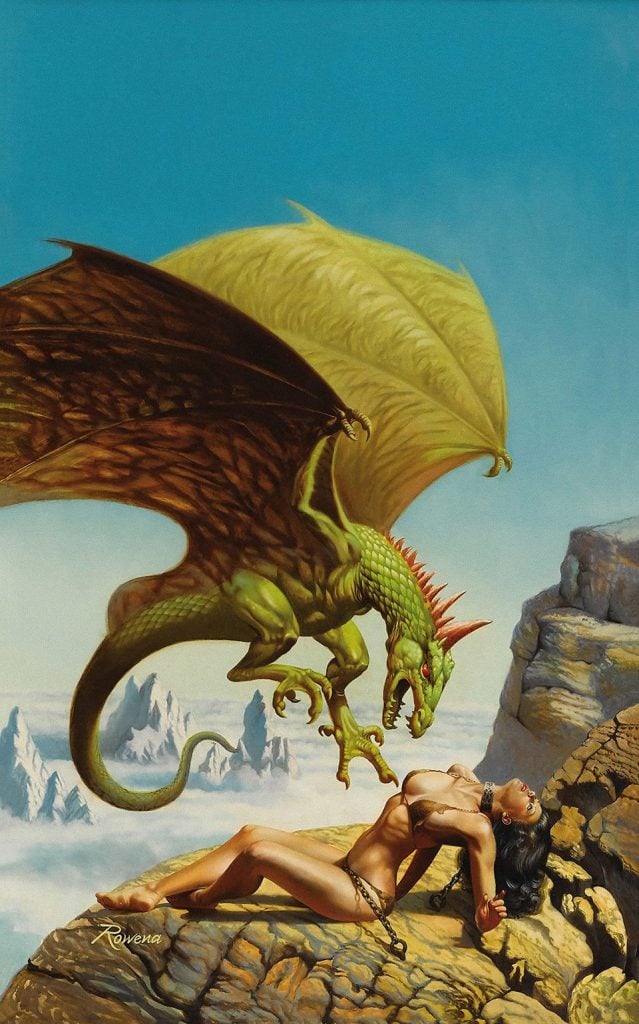
Rowena Morrill, King Dragon (1980). Courtesy of Rowena Morrill from TASCHEN’s Masterpieces of Fantasy Art.
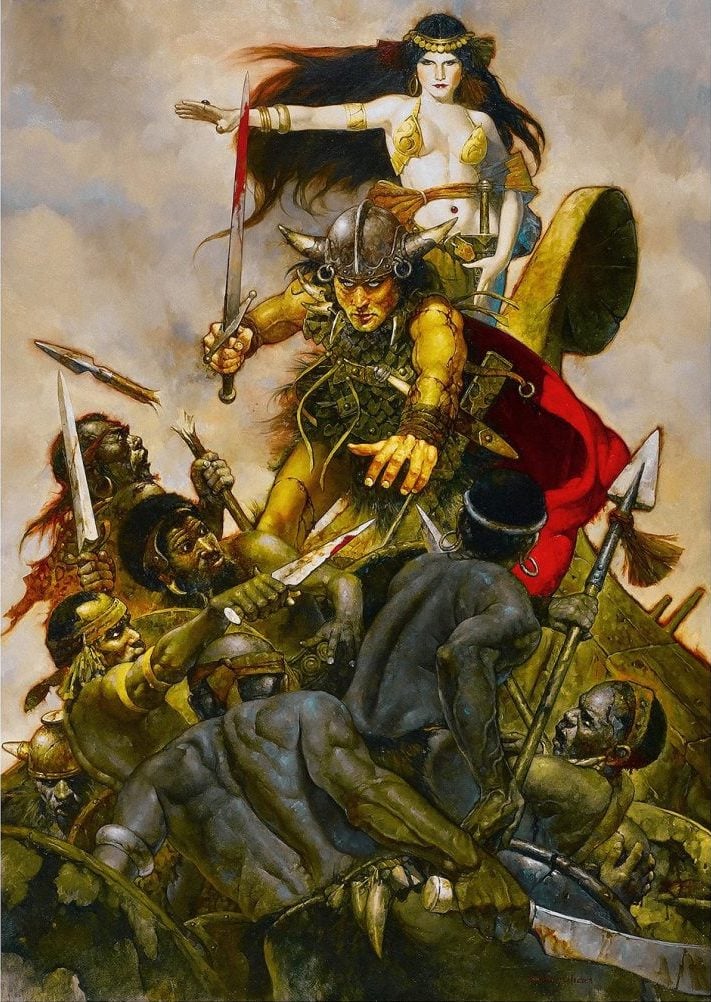
Sanjulian, Queen of the Black Coast. Courtesy of Sanjulian and Heritage Auctions from TASCHEN’s Masterpieces of Fantasy Art.
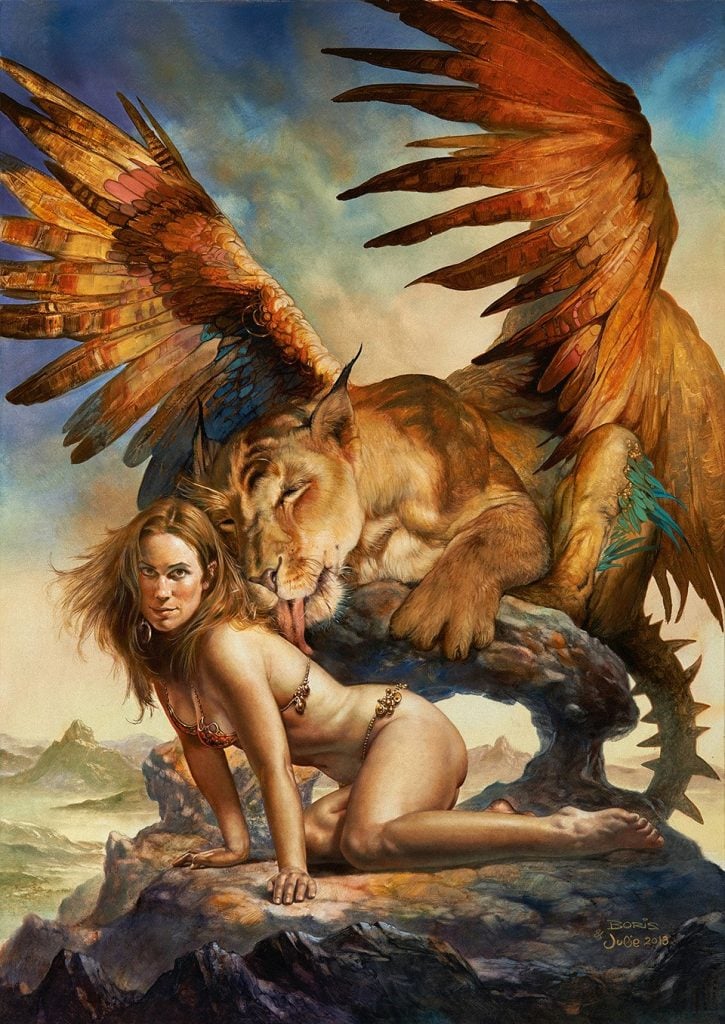
Boris Vallejo & Julie Bell, Jeannie’s Kitten (2013). Courtesy of Boris Vallejo & Julie Bell from TASCHEN’s Masterpieces of Fantasy Art.
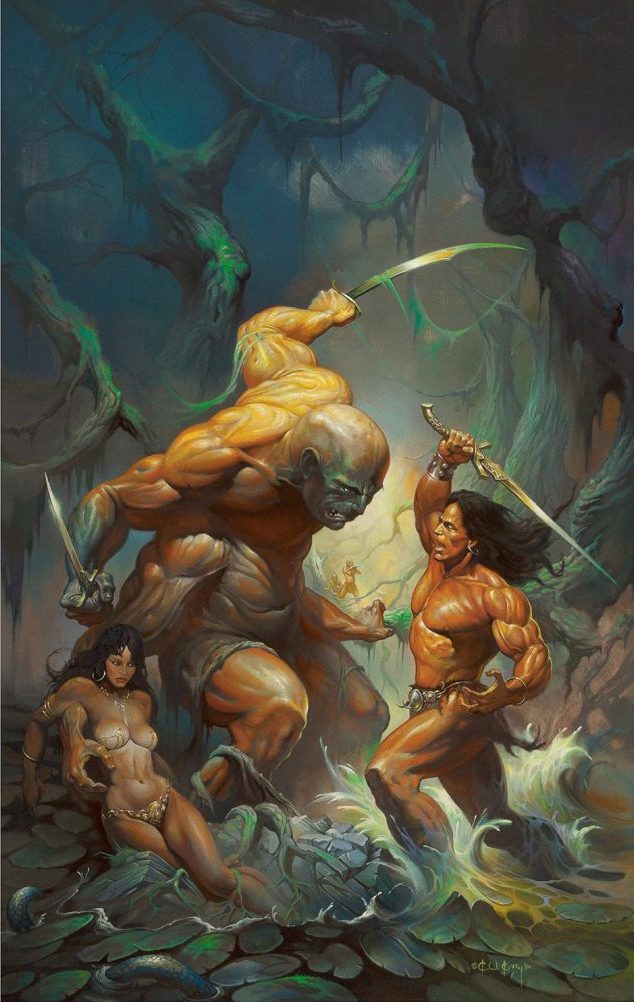
Sanjulian, Queen of the Black Coast. Courtesy of Sanjulian and Heritage Auctions from TASCHEN’s Masterpieces of Fantasy Art.
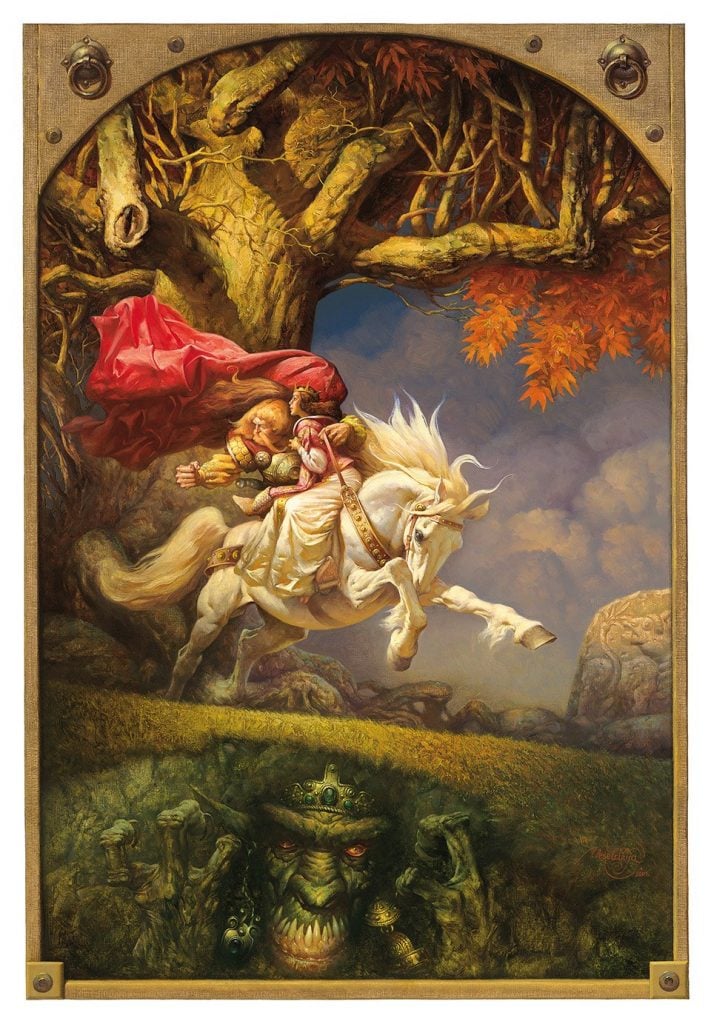
Petar Meseldzija, The Legend of Steel Bashaw 9 (2001). Courtesy of Petar Meseldzija, from TASCHEN’s Masterpieces of Fantasy Art.